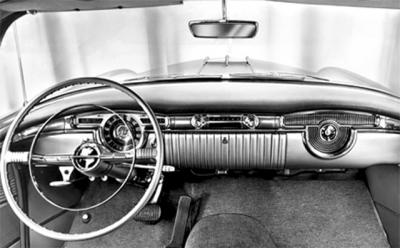Car Wash Follies
Car Wash Follies
It seemed like a good idea at the time. Newly (and consciously) coupled, we needed to be comfortable driving each other’s cars. What better plan than to drive the vehicles to the car wash, followed by a leisurely lunch at Southampton’s Sant Ambroeus?
So we set out from Amagansett, she in my Mercedes and I in her Range Rover. Emerging from the car wash 45 minutes later, I can’t spot my Mercedes. Surely the smaller car would be finished first? I park on the shoulder of Route 27 and wait for my car to emerge. Five minutes pass before my cellphone rings. This dialogue ensues:
She: “Where are you?”
Me: “Waiting for you to come out of the car wash.”
She: “I’m out. I’m parked on the Southampton road. I’ll wait for you on the shoulder.”
I gun the eight cylinders and hang a right toward Southampton. After a few minutes, I spot her glossy gray hair some hundred yards ahead. She waves and eases into the traffic. I follow her. In less than a minute, I realize I must have lost her. There’s no Mercedes convertible in the knot of cars ahead.
Arriving at the outskirts of Southampton, I parallel park the big vehicle and call her. More dialogue:
Me: “Where are you?”
She: “I’m in the village parking lot. Where are you?”
Me: “Parked on the street just outside town.”
She: “Well, what are you waiting for? Drive in and go straight to the village parking lot; you’ll see a sign. I’ll meet you there.”
I work my way out of the parking spot and drive into town. Before I can turn into the parking lot, I see her waving me toward an empty parking space on Main Street. I slide the Range Rover in, lock it, and we head for lunch at Sant Ambroeus. It turns out to be a long lunch enlivened by a glass of wine, and then we window-shop for a while to let the alcohol neutralize.
“So,” I say, “should we head back?”
“Guess so. I have an appointment in East Hampton, so why don’t you keep my car and I will bring yours to your place and we can swap them there.”
“Sounds like a plan,” I say, and we part, she to the parking lot, me to my spot on Main Street.
Forty-five minutes later and four hours since we left the car wash, I swing into my Amagansett driveway.
My cellphone rings. “Southampton Car Wash here. Sir, when are you coming to collect your car?”
“Excuse me?”
“Your car, the Mercedes convertible? It needs to be picked up. You took the wrong Mercedes.”
Blood leaves my body. “I’m on my way. How did you get my cell number?”
“We rang the cops. They ran the plates. Your name popped up.”
“Great, so now I’m a felon. And where’s the other car?”
“You mean the one that’s missing? You’re driving it, I hope.”
“Not exactly. But I think I know where it might be.”
“Well, sir, I suggest you bring it back as soon as possible. We have a very unhappy customer here who’s been waiting nearly five hours for his vehicle.”
“Like I said, I’m on my way.”
I call her.
“Where are you?”
“At White’s Pharmacy. Why?”
“You drove away with the wrong car. Don’t move. I’m on my way.”
At the parking lot, I can see it’s a Mercedes, but it’s not my Mercedes.
“But it’s a Mercedes,” she says.
“Yes, that much is true, but it’s blue, not gray, and it’s a sedan, not a convertible. All I could see when you waved at me was your hair, not the color of the car.”
“Well, that’s unfortunate,” is all she says.
I leave her with her Range Rover and drive the blue Mercedes to the car wash, but not before filling it with gas.
I hand the keys to the car’s visibly irritated owner. “Is it driving okay?” he asks. Fortunately, he avoids eye contact.
Assuming this to be a man-to-man question, I say, “Well, actually it’s pulling a bit to the left.”
He looks alarmed. “It wasn’t doing that this morning. I’m going to drive it around the block. I’ll be back if there’s a problem.”
He doesn’t return.
For weeks afterward, the car wash staff call out the same greeting: “Hey, here’s the guy who drove off with another guy’s car!”
Eighteen months later, we’re still together.
Brian Clewly Johnson recently published a memoir, “A Cape Town Boy.”

